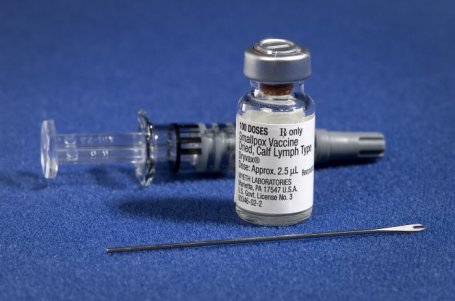
The smartest person with whom I have ever worked sent me a very interesting article from Science Daily. She and I wrote several articles related to the science behind vaccination years ago, and this article is relevant to that issue. It reports on a study published in BMC Immunology, an open-access journal. The results of the study are worth noting.
The researchers studied peripheral blood mononuclear cells (PBMCs) and how susceptible they were to infection by HIV, the virus that causes AIDS. PBMC is the name given to any blood cell that has a round nucleus. Since red blood cells don’t have a nucleus, what this means is that the researchers were looking at certain white blood cells, which are a part of the body’s immune system. Obviously, the susceptibility of white blood cells to HIV is an important issue in the study of AIDS.
Here is the key: they looked at the PBMCs from 10 volunteers who had never been vaccinated against smallpox as well as the PBMCs from 10 volunteers who had been vaccinated against smallpox with a Vaccinia-based vaccine 3 to 6 months prior to the study. Vaccinia is a virus in the poxvirus family that is typically used to produce the immune response to protect against smallpox. Guess what they found.

